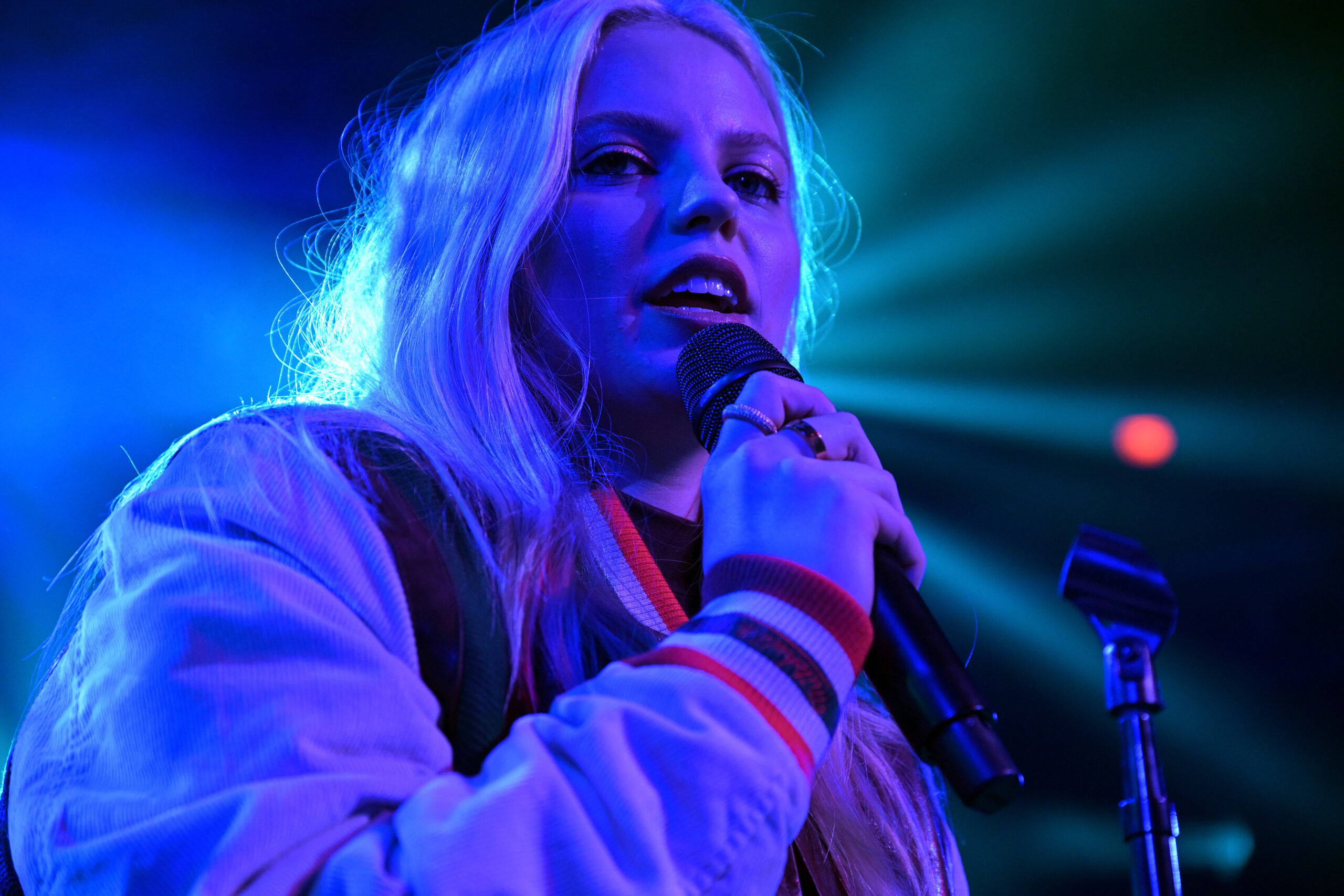After coming out publicly as bisexual last year, The Sex Lives of College Girls star Reneé Rapp has opened up about the difficulties of playing queer on the show. Her experience on the set of the first season was hampered by her own coming out, as biphobia in her upbringing had left her “freaked out” by her sexuality.
Speaking to the Call Her Daddy podcast, Rapp described growing up in a deeply conservative area in North Carolina. “I had never heard anything surrounding [being queer] in a positive light because the one queer person that I knew in my life is a family member of mine who I really looked up to, who got absolutely shitted on by everybody in our family,” she said.
Rapp realized she wasn’t straight in high school when she got a crush on another girl. But the constant biphobia around her left her feeling like there were only two options: gay or straight. “I was like, ‘Well, have to pick a side. Gotta be a lesbian,'” she recalled.
Years later, she would land the role as Leighton in HBO Max’s hit comedy series, The Sex Lives of College Girls. Leighton is a preppy blonde who comes from an upper-class family, but over the course of the first season, she wrestles with the fact that she is gay and in the closet. By season two, she is out, confident and fully enjoying her “ho era.”
Behind the scenes, Rapp’s depiction of Leighton’s sexuality was fraught with imposter syndrome. “The first year of doing College Girls was terrible,” she said. “It sucked so bad, because at the time, I was in a heteronormative relationship and I hated going to work because I was like, ‘I don’t think I’m good enough to be here, I don’t think I can be doing this, maybe I’m just trying too hard’, and I would come home and psych myself out, literally.”
Additionally, Rapp continued to wrestle with seeing herself as bisexual. “I called one of my friends and I was like, ‘I am straight, like, I think I’m just straight; I can’t do this.’ … I was in a panic constantly, and I wasn’t [straight] but I was so freaked out by the idea of my sexuality not being finite or people laughing at me, or me laughing at myself, that I hated the first year of filming.”
And playing a gay character meant that more and more people were curious about her own sexuality. “I’m going through set and I’m doing these scenes and I have gay men coming up to me and being like, ‘So, are you really gay? Like, do you just play gay?’ And I was like, ‘Ugh!'” she said.
Although Rapp eventually came out, the harm of biphobia has been hard to shake. “Now it’s really cool for everybody [to be gay] and everybody’s like, ‘Oh my god, amazing!’” she said. “I did not have that same support as a kid.”
Rapp concluded by acknowledging that even her own terrible experience with biophobia was tempered by privilege. “I understand there’s an immense level of difference in people who are bisexual,” she said. “I’m a cis, white woman—that’s loaded in and of itself. I understand that. It still really fucking pissed me off. It made me second-guess everything about myself.”
Don't forget to share:
Help make sure LGBTQ+ stories are being told...
We can't rely on mainstream media to tell our stories. That's why we don't lock our articles behind a paywall. Will you support our mission with a contribution today?
Cancel anytime · Proudly LGBTQ+ owned and operated
Read More in Culture
The Latest on INTO
Subscribe to get a twice-weekly dose of queer news, updates, and insights from the INTO team.
in Your Inbox













